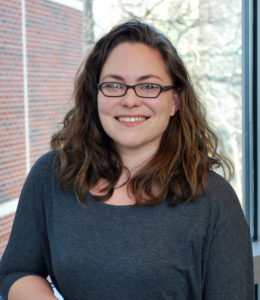Dr. Jessica Weaver obtained her PhD in Biomedical Engineering at the University of Miami. She completed a postdoctoral fellowship at the Georgia Institute of Technology, where she was supported by the NIH ILET2 training grant and a JDRF Postdoctoral Fellowship. As an Assistant Professor in the School of Biological and Health Systems Engineering at Arizona State University, Dr. Weaver’s research centers on developing translatable cell-based therapies for the treatment of disease, with a focus on islet transplantation for the treatment of Type 1 Diabetes. The Weaver lab uses biomaterials and immunoengineering approaches with the aim to generate immunosuppression-free transplantation strategies. She can be found on Twitter @jdweaverBME.
Read Jessica’s Emerging Investigator article “Biomaterial-based approaches to engineering immune tolerance” and check out all of the 2021 Biomaterials Science Emerging Investigator articles here.
How do you feel about Biomaterials Science as a place to publish research on this topic?
I was honored to submit our review on biomaterial-based approaches to engineering immune tolerance to the Biomaterials Science 2021 Emerging Investigators Issue, as it is a high impact and widely-read journal in the biomaterials community, ensuring a broad readership of our work.
What aspect of your work are you most excited about at the moment and what do you find most challenging about your research?
Our lab is excited about our work in the area of engineering immune tolerance, where there is substantial room for growth and discovery in the use of biomaterials as tools to augment and control the immune response.
In your opinion, what are the most important questions to be asked/answered in this field of research?
The influence of biomaterials on the immune response has long been a critical aspect of biomaterials research. As we learn more about the mechanisms of immune cell responses to implanted materials, we are poised to make advancements in the use of materials to control and influence these responses. However, there are currently more questions than answers to how biomaterials influence these responses, and the next decade should be an exciting period of investigation and discovery into these biomaterial-influenced immune mechanisms.
Can you share one piece of career-related advice or wisdom with other early career scientists?
If I had one piece of advice for early career scientists, it would be to reiterate the advice given to me by my trusted mentors: pursue a portfolio of research ideas balanced in high risk/high reward and practicality. Pursue a balance of approaches achievable in the short and long term – this will hopefully maximize the impact of your work both now and in the future.











